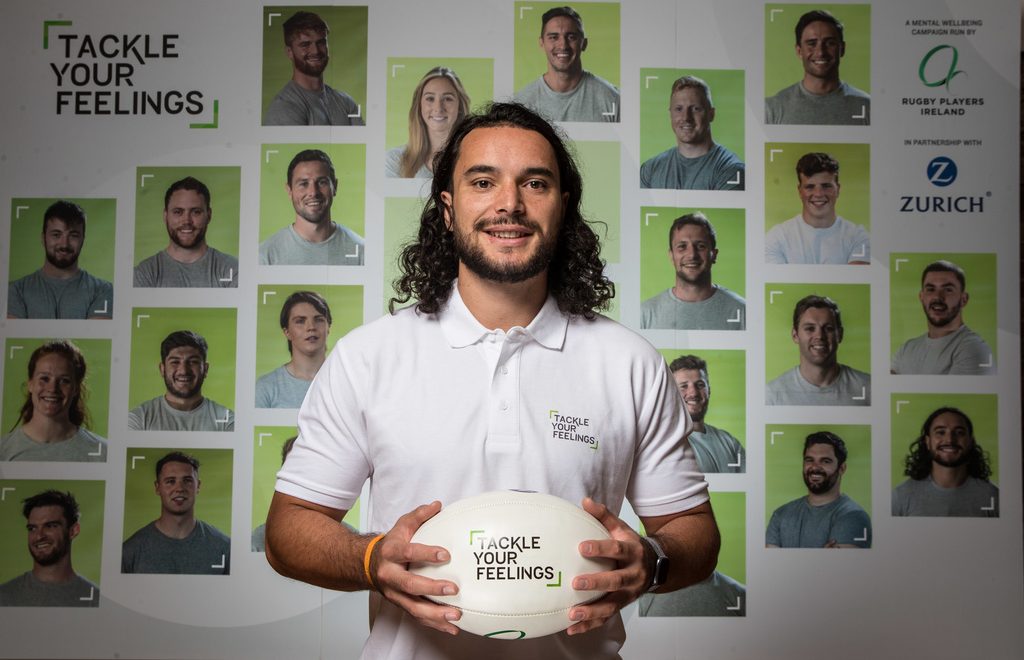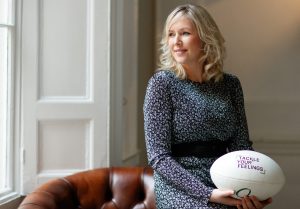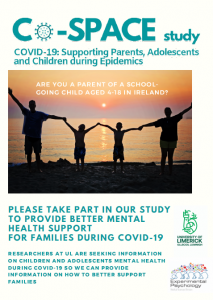News
Consistency is Key

As Taoiseach Leo Varadkar put it, it was a St. Patrick’s Day like no other. Throughout the day the pubs remained quiet and the streets empty. If anybody was in any doubt as to the seriousness of the situation, they were set straight by Varadkar’s transparent words as they looked on from home.
Setting the Irish Government’s stall out as we faced the stark reality of what we will come to experience in the weeks ahead, Varadkar sought to rally the Irish people as we embarked on a new and unique journey as a country.
Notably, he paid tribute to the healthcare workers across the country who were bracing themselves for weeks at the frontline. “Not all heroes wear capes” he told us, “some wear scrubs and gowns.” We couldn’t agree more. However, it shouldn’t be lost on anyone that we all have a role to play.
There have been many different reactions to the disruption. The slower pace of life has been welcomed by some, while for others Covid-19 has been a source of considerable stress and worry. Yet regardless of individual circumstances, everyone is feeling the effect of the crisis. Young or old, the management of one’s mental wellbeing is also registering on everyone’s radar. However, some need more help and direction in this area than others.
In a recent article by Tackle Your Feelings (TYF) Consultant Psychologist Dr Jennifer McMahon and her colleague Dr Elaine Kinsella, several methods are proffered to help parents and guardians support their dependents through this time. In addition to enabling them to maintain their connection to others and advising a range of resources online, responsible adults are urged to encourage young people to draw from the strength of exceptional others or ‘heroes’.

Mandatory Credit ©INPHO/Tommy Dickson
“One of the key reasons I became interested in the TYF campaign was the involvement of rugby players,” Dr McMahon says. “A major finding of our study was that young people will look to their heroes to help regulate their emotions and to model the type of behaviour they aspire to.
“From that perspective, the rugby players have a crucial role to play by showing they are taking this seriously, modelling social distancing and that they are taking time for themselves everyday by using the app. This can be central to a young person’s development during this time. They see people they admire taking it seriously and this translates into them taking it seriously for themselves.”
Across the country, Rugby Players Ireland’s members have been making their own significant adjustments to their lives. The show must go on to a certain extent, so chairs and kitchen utensils have found new life as fitness equipment while the idle time has also presented an opportunity to develop fresh skills and habits.
“I have seen a lot of people take different approaches but the key to everything is consistency,” Dr McMahon adds. “Whatever works for you, ensure to build it into your routine to help you stay on top of things. That could be the app, for example. There are a lot of aspects on the app that you can touch base with regularly and that can help you maintain your sense of wellbeing.
“At the very least, I would be recommending that people take a few minutes for themselves every day. People will think they’re too busy, but when things ramp up that’s when it’s even more important to protect those few minutes. It’s important when you are quiet, it’s even more important when you are busy.”
Dr McMahon is speaking as isolation measures are extended for a further period. While there has been a positive response to the measures imposed thus far, with no end in sight some are becoming emotionally frayed.

Mandatory Credit ©INPHO/James Crombie
“When we finish one period of restrictions and head into another you will have a few days of transition again. You spend a bit of time trying to envision where all of this is going. That can become very overwhelming and stressful. At those times it can be hard to start something new, whereas if you’re proactive and have already adopted it, it’s much easier to stick to it or go back to it rather than starting afresh, but in saying that it’s never too late to start something.
“We all have things to juggle – work, children, jobs around the house. All are important and you make time for them as you go about your day. Just don’t lose sight of yourself. Make sure to take the time to do whatever helps you get through. Consistency and self-care is key to surviving this period and you might even develop new skills and resources that will be helpful when it is over. Adults are also modelling behaviours for children and young people so self-care is really care for all the family.
Dr McMahon comes to the Tackle Your Feelings with considerable experience. A lecturer at the University of Limerick in Psychology and Inclusion, she is a researcher in the area of youth mental health. She also works with teachers in training and the management of their student’s mental wellbeing as well as gives talks to all sectors of education on the social emotional dimension of teaching and learning. She has also worked previously for Jigsaw, The National Centre for Youth Mental Health who provide crucial mental health supports for young people in Ireland.
“I was familiar with the campaign and had used the app before Hannah [McCormack, TYF Campaign Manager] approached me to get involved. I’m part of the consultancy team with Mark Smyth who is the current President of the Psychological Society of Ireland (PSI).

Mandatory Credit ©INPHO/James Crombie
“Both Mark and I reviewed all of the materials before they were published and supported the development of the content. In terms of the app, all of the exercises derive from evidence. In other words, research has shown that if you follow them, they will work. The interface is also very user-friendly and accessible. The scaffolded approach of the schools’ programme also ensures teachers can assuredly deliver the programme. The background research and attention to all aspects of the programme gave me tremendous confidence in lending my support.”
As the isolation measures ramp up, more and more people will look towards campaigns and initiatives like Tackle Your Feelings. It is important that TYF is there to offer guidance, support and inspiration.
“There has obviously been a heightened awareness of mental health and wellbeing at the moment. Suicide and self-harm are the leading cause of death in young people in Ireland. There are very few families that it hasn’t affected. My sense is that rugby players know they have an influence over people young and old. Many have a authentic connection to the issues and understand the powerful role they can play in this space.’’
“I was with Eimear [Considine] at the launch of her video in February. I don’t think anybody could look at that and not feel the genuine emotion poring through. You could really feel it coming from Eimear and it travelled with her as she talked about the challenges she experienced and the subsequent efforts she made to ensure she was mentally well.
“Now more than ever, people will be looking to them. These players can make a real difference.”
Not all heroes wear capes.
Supporting Youth Wellbeing during Covid-19

UL RESEARCHERS LAUNCH Co-SPACE STUDY TO EXPLORE STUDENT MENTAL HEALTH DURING COVID-19
COVID-19 has led to major disruptions to the lives of young people and their families that threaten their wellbeing. A team of experts at the University of Limerick have launched a new study to explore how students aged 4 – 18 years and their families are coping during COVID-19 to identify what advice and support can protect their mental health during a period of rapidly evolving pressures.
In the study entitled Co-SPACE (COVID-19 Supporting Parents, Adolescents and Children during Epidemics), researchers aim to track children and young people’s mental health throughout the COVID-19 crisis to identify what advice, support and help can actually protect their mental health.
Dr Jennifer McMahon, who is a Lecturer in Psychology of Education, notes that ‘anecdotal reports suggest that many families and students are struggling with the restrictions imposed by COVID-19 and whilst general mental health supports are available there is a distinct lack of information about what type of supports could be most effective in context of COVID-19’.
If you are interested in completing the study find the link here:
https://tinyurl.com/UL-COSPACE
Back to NewsLatest Posts

Highlights: November 2025

Molloy, Ferris & Heaslip enter Hall of Fame

À La Carty
















